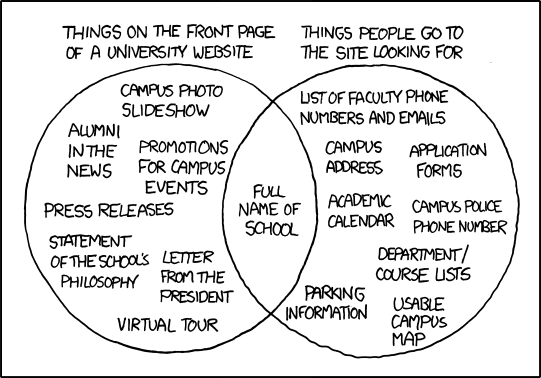The unstated assumption behind providing this sort of data as evidence of a liberal arts education is that particular classes in various areas of campus provide certain unique or critical factors that students should internalize (and perhaps integrate into their overall understanding). However, what are those unique and critical factors those courses bring? And if students take those courses, are they really taking away those things? And does every course within a division really provide the critical and unique learning that we're wanting them to have?
That sort of "bean counting" only really provides meaningful information if you can also point to what each of those beans is really representing in the form of particular knowledge, skills, and attitudes students have as a result of that bean.
To identify these things, perhaps it would help to ask ourselves: "Could I take all my courses in one division and still achieve a liberal education? Why or why not?" If we equate achieving a liberal education with achieving the College-Wide Learning Outcomes in a meaningful way, then I could see it very possible for students to achieve these while only taking coursework in one division. On the other hand, the "Elements of a Liberal Education" are written more as subject matter knowledge. So if we use these to indicate the learning essential for a liberal education, it becomes more difficult to complete coursework in one division and still achieve a liberal education by this definition; though, it could be possible depending on the course design. At minimum, I'd need to take courses in any discipline that use non-native languages, that involve writing/communication, that involve scientific reasoning, that involve mathematical reasoning, that examine human society and behavior, and that involve creative expression. If we are looking towards the college mission as the evidence of having achieved a liberal education, then I probably could still take courses in one division only as long as I can demonstrate that I can think clearly (whatever this means to us), speak persuasively, write persuasively, critically evaluate my own ideas, critically evaluate others' ideas, acquire new knowledge (whatever this means to us), and use my knowledge and abilities to serve the common good. If these are our working definitions for a liberal education and a student can achieve the learning all in one division, then we might need to ask ourselves: "Why is it important students take X courses in different divisions?" Perhaps the answer relates more to practical issues of college function (such as student enrollment) or other factors than it does for making sure students are learning the essential knowledge, skills, and attitudes?
Ultimately, the various "definitions" of a liberal education that we have (CWLO, elements, mission) all point to different, but overlapping, knowledge, skills, and attitudes that we expect as evidence that a liberal education happened. For this reason, I see your approach to be the most straightforward: students define for themselves what a liberal arts education means, they select learning opportunities (curricular and co-curricular) to achieve a liberal education as they've defined it, and they demonstrate how well they achieved a liberal education according to their definition.
